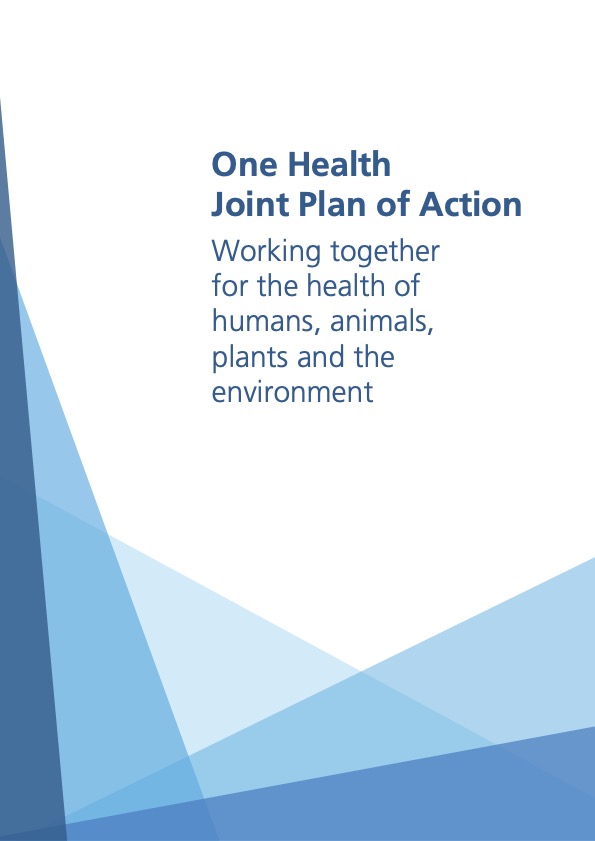Side Meetings
SMB202
Challenges and Opportunities for strengthening biodiversity, climate resilience and environmental determinants in One Health to build robust health (eco)systems and societies: the implementation of the One Health Quadripartite Joint Plan of Action
24
Jan
- World Health Organization (WHO)
- Food and Agriculture Organization (FAO)
- Organization for Animal Health (WOAH)
- United Nations Environment Programme (UNEP)

One Health (OH) is a cross-cutting, systemic, and holistic approach to health based on evidence that human and animal health are interdependent, and both connected to and reliant on the health of the environment, including the ecosystems, in which they live[1]. Health threats at the human-animal-environment interface can thus be effectively addressed only with a common understanding of the ecological and health challenges between, and collaboration across all relevant disciplines, sectors, and stakeholders, including those dealing with environmental matters.
On 17 March 2022, the Food and Agriculture Organization of the United Nations (FAO), the World Health Organization (WHO), the World Organisation for Animal Health (WOAH), and the UN Environment Programme (UNEP), signed a Memorandum of Understanding (MoU) to establish the Quadripartite (QPT) that enables cooperation among the four organizations.
The integration of UNEP in OH Quadripartite (QPT) and the renewed focus on the crucial role of a healthy environment and healthy ecosystems for OH offer key opportunities and challenges to overcome discipline and sectorial boundaries. It enlarges and strengthens the scope of action. It paves a strong foundation for enabling OH actors to speak with one voice and have a stronger impact on policy decision-making and implementation. It also implies thinking of, elaborating, and applying:
- new ways of multi-sector and multi-stakeholder partnerships on the ground between OH actors, with a collaboration currently mostly limited to medical and veterinary professionals . These must be expanded to include greater engagement of stakeholders with expertise in the environmental determinants of health), and
- new implementation mechanisms in current and future activities, especially at the country level.
The QPT has developed a OH Joint Plan of Action (OH JPA) (2022-2026), which works as an operational framework to achieve national targets and priorities for OH interventions. With its recent finalization, the QPT is now at the stage to translate the global strategy into a concrete implementation framework that will guide all stakeholders to implement the OH JPA in a coordinated and systematic way. Particularly, Action Track six (AT6) of the OH JPA focuses on mainstreaming the health of the environment and ecosystems into the OH approach.
[1] This refers to the expanded definition of One Health developed by the One Health High-Level Expert Panel (OHHLEP) and endorsed by the QPT organizations.
The workshop will aim to brainstorm on the challenges and opportunities related to the implementation of the OH JPA (specifically discussing AT6) and the implementation framework at the environment, biodiversity, and climate nexus. Many ongoing OH activities worldwide fail to address these environmental determinants of health. The workshop will try to understand and identify ways of overcoming this gap. It will be focused on concrete examples and cross-sectoral case studies. It will aim to come up with best practices of multisectoral and multilevel collaborations, and potential key new implementation mechanisms to address in priority at national and local levels. In doing so, it will look at how to better embed environmental determinants and ecosystem-based approaches in One Health. The workshop will also seek to engage with the views and experiences of local communities, indigenous people, and youth.
Expected outcomes of OH QPT workshop
The workshop presentations, discussions, and conclusions are expected to help to:
- feed into the OH QPT’s own thinking for the operationalization and implementation of the OH JPA, and
- inform sessions of the main programme of the PMAC conference, including sessions 2.2 and 2.5 under subtheme 2, as well as on-the-ground experiences in theme 3.

